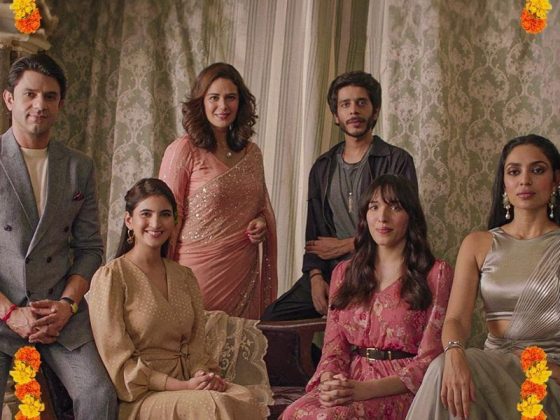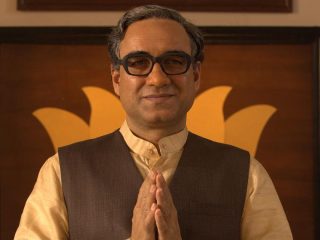Infidelity as a subject usually has pretty black-and-white views and opinions. Objectively, in most situations, the odds are high for people to say “cheating is wrong”. And yet, once in a while we come across stories that speak to us on another level and nothing is black-and-white anymore.
Cinema has a way of showing us truths that we didn’t know existed and perspectives that we didn’t think mattered. It made me question the morality and intention behind one’s actions. Why does one cheat on their partner? What drives such self-destructive behaviour that could most likely lead to catastrophic consequences? Several movies explore this subject and, in their own way, give us a little insight into the minds of adulterers, reluctantly changing at least some views and opinions. Here are a few movies that changed mine.
The Great Gatsby
Gatsby’s love for Daisy had endured and survived decades. He harboured it in his heart and let it grow enough to consume his every thought. Daisy returned his obsession to some extent, even if she lacked the courage to follow through. Great loves, soulmates, the belief that this is the only person in the world for you, are ideals that hold enormous power. Coupled with choosing a night of passion or a brief period of happiness over an existing unhappy relationship, choosing the former becomes heart-breakingly easy. Movies like An Affair to Remember, Titanic, Casablanca are classics because they tell us a story that so many relate to or even fantasize about. So, is it cheating if one truly believes it is with the love of your life?
Brokeback Mountain
Brokeback Mountain is the tragic love story of two men that spans over decades. At a time when being gay wasn’t accepted, it was evident that Jack and Ennis found solace in each other. Their relationship was their safe space, a place where they could be themselves without shame. A member of the Great Loves club, Brokeback Mountain adds homosexuality to the mix, and gives us yet another side of the infidelity. Their love affected the lives of their wives and their children, but the blow of infidelity was softened. Despite everything, I still rooted for them and hoped they would find a way to each other. So, does society’s rigidity and intolerance sometimes drive people to infidelity in order to find solace?
The Fabelmans
The Fabelmans is an accurate representation of how films can open your eyes to happenings right under your nose. Sammy, an aspiring filmmaker, learns about his mother Mitzi’s feelings for his parents’ best friend, Bennie, while making a home movie from their camping footage. Mitzi confesses to Sammy that she never crossed the line, but when the family moves to California, Mitzi falls apart without Bennie. Mitzi and Bennie had built an emotional bond over the years, and even though it wasn’t physical, Mitzi’s affections lay with another man. Emotional infidelity is oftentimes worse, as the driving force is not desire, but love. As we explore the role of love in infidelity, what defines loyalty and when is that line truly crossed?
Astitva
This 2000 film reveals the realities of adultery in Indian marriages. Aditi is driven into the arms of her lover by her husband Srikant’s neglect, chauvinism and gruesome double standard. In Astitva, Srikant is objectively a bad husband, never viewing his own affairs as something to be ashamed of while shaming Aditi for the same. So, as a viewer, I understood why Aditi was unfaithful. And seeing the abysmal double standard inflicted on a cheating wife versus on a cheating husband only hardened my stance. Movies with emotionally and physically abusive partners often push the victims to find love and security elsewhere. So, is infidelity morally acceptable when the partner is far from ideal?
The Intern
The Intern doesn’t scream “poster child” of infidelity, but this was the movie that really got me thinking about what adultery does to break a marriage. Jules is trying her best to keep up with the success of her company and hold her marriage together, while raising a young child with her husband. When he cheats on her, after her initial devastating reaction, we see her have an honest conversation. She voices her fears of being alone and dying alone if her marriage does not work out – a fear that almost pushes her to make a professional decision largely to save her marriage. In the end, when Jules and Matt do make it work, it is after they acknowledge this rough patch in their marriage, almost treating it like any other hardship a couple faces. We can never know if that worked for them, but it made me wonder – is cheating always unforgivably wrong or sometimes, a human error in judgement?
White Lotus
The second season of White Lotus gives us a unique insight into open relationships and what infidelity means then. Ethan and Harper look like they’re in a loveless marriage, which also makes us low-key support her attraction to Cameron. It is this affair that pushes Ethan and Harper back to each other, even helping them find some of their former attraction. Whereas, Daphne and Cameron are in an open relationship because they truly think it keeps things “interesting” – a notion that is somewhat proved true after Ethan and Harper’s romance rekindling. So, when cheating jumpstarts a dying relationship, in hindsight, does it become an inevitable necessity?
Vicky Christina Barcelona
Vicky Christina Barcelona is the kind of movie that goes beyond the person one cheats on and the person one cheats with. It is heavy with symbolism as Doug personifies the life Vicky lives and Juan, the life she wants. Instead of desiring Juan for the man he was, she desired the side of her he brought out – a freer, more impulsive person who wasn’t constantly weighed down by make the more practical and right decision. And in Vicky’s situation, even just experiencing life as this other person was enough to eventually survive the stable, secure and predictable life she had already signed up for. So, if the intentions of infidelity have nothing to do with the person cheated with but what they represent, is it infidelity in its truest form and deserve the same consequences?
Now, this article in no way justifies infidelity. In many, many situations, adultery is objectively unacceptable. But having explored infidelity through multiple lenses and narratives, there are certain cases where it is greyer than it seems. And cinema played a big role in my understanding this facet of humanity.











